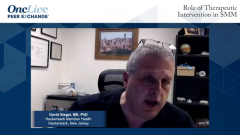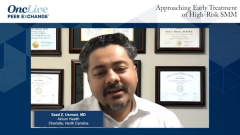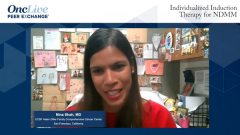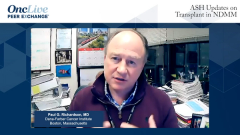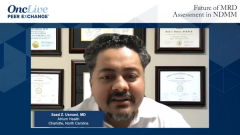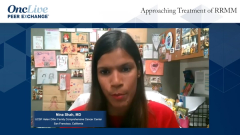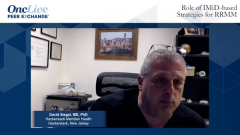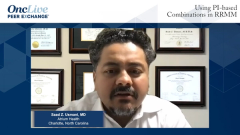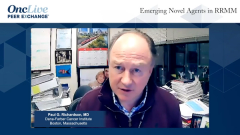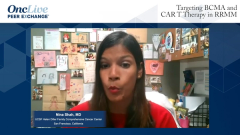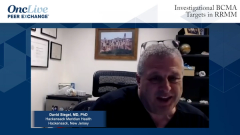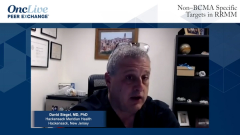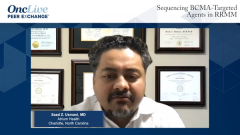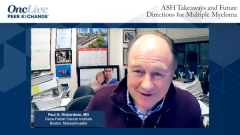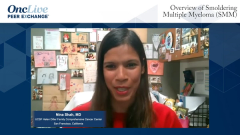
Non-BCMA Specific Targets in RRMM
Examining non-BCMA BiTE (bispecific T-cell engager) approaches to therapy, such as talquetamab and BFCR4350A, for the treatment of RRMM.
Episodes in this series

David Siegel, MD, PhD: The other 2 clinical trials that Paul discussed are T-cell engagers that are not BCMA [B-cell maturation antigen]-specific. You should understand this is the first presentation of this kind of data, but we’re going to be hearing data about CAR [chimeric antigen receptor] T cells that start to use these as targets as well, among other targets in addition. The first of these, which was presented by Ajai Chari, MD, from Mt Sinai Health Systems, targets a molecule called GPRC5D, which stands for G protein-coupled receptor, class C group 5 member D. This is ubiquitously expressed on mature plasma cells and some preplasma cell populations.
Notably, both targets have an advantage in that they’re not shed in the same way that BCMA is. Therefore, there are going to be fewer issues with interference. BCMA is shed from tumor cells as well as from normal plasma cells, so there’s a significant amount in the circulation. With some of these monoclonal antibodies, this could be problematic, although it hasn’t proven to be problematic to date. So these targets may have subtle physical advantages. The second one is FcRH5, which is Fc receptor homolog 5, which is another target that is expressed ubiquitously on plasma cells. Specifically, both trials are very early in their course. The first of these had response rates in a heavily pretreated patient population of over 60%. The second, in a heavily pretreated population, had a response rate of over 50%. We’re not sure what the ultimate doses are going to be, and there are different schedules that are being tested, but the point being that these T-cell engagers are very interesting molecules. We’re also going to see similar kinds of approaches that use cells that don’t just target T cells, but other cancer-specific effectors.
I think one of the exciting areas that you’re going to see over the next couple of years at ASH [American Society of Hematology] is the further development of these molecules, perhaps in combinations. I think these are going to be certainly competition for the CAR T cells. They have the disadvantage of being ongoing, as opposed to the CAR T cells, which are one-off therapies.
Paul G. Richardson, MD: Excellent. Thank you very much, David.
Transcript edited for clarity.


